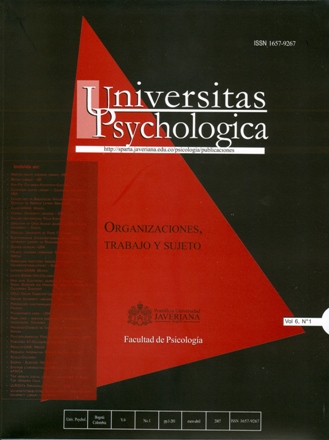Abstract
Este artículo considera el interjuego que se establece entre la producción del conocimiento psicológico en las sociedades nor-atlánticas y la construcción de la subjetividad de los trabajadores que se adelanta en los países del "tercer mundo". Inicialmente, se señala la actitud celebratoria que asumen los psicólogos ante la expansión del conocimiento psicológico industrial/organizacional, la cual evita el análisis de las dimensiones neo-coloniales de la psicología. Se ilustran y analizan algunas de las implicaciones colonizantes que el saber psicológico tiene cuando contribuye a construir la subjetividad de los trabajadores en los países "en desarrollo" como "otros" que requieren ser psicológicamente transformados o "modernizados", con el objetivo de alcanzar el desarrollo nacional. Se concluye sugiriendo algunos de los posibles caminos para continuar la investigación de las dimensiones neo-coloniales de la psicología en el mundo del trabajoThis journal is registered under a Creative Commons Attribution 4.0 International Public License. Thus, this work may be reproduced, distributed, and publicly shared in digital format, as long as the names of the authors and Pontificia Universidad Javeriana are acknowledged. Others are allowed to quote, adapt, transform, auto-archive, republish, and create based on this material, for any purpose (even commercial ones), provided the authorship is duly acknowledged, a link to the original work is provided, and it is specified if changes have been made. Pontificia Universidad Javeriana does not hold the rights of published works and the authors are solely responsible for the contents of their works; they keep the moral, intellectual, privacy, and publicity rights. Approving the intervention of the work (review, copy-editing, translation, layout) and the following outreach, are granted through an use license and not through an assignment of rights. This means the journal and Pontificia Universidad Javeriana cannot be held responsible for any ethical malpractice by the authors. As a consequence of the protection granted by the use license, the journal is not required to publish recantations or modify information already published, unless the errata stems from the editorial management process. Publishing contents in this journal does not generate royalties for contributors.


